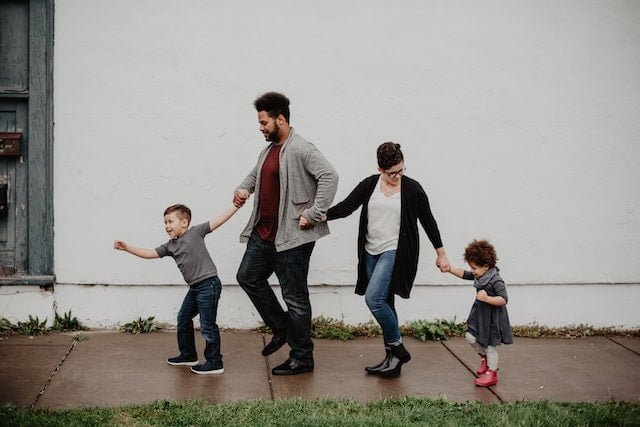
Learn to deal with conflict and create stronger bonds in your relationship!
Conflicts and disagreements are inevitable in any relationship, be it romantic, familial, or professional. However, how we navigate these challenges can make all the difference in the health and longevity of the relationship. In this article, we will explore effective strategies to navigate conflicts and disagreements, fostering understanding, growth, and stronger connections. By learning constructive communication techniques, fostering empathy, practicing active listening, and finding common ground, we can transform conflicts into opportunities for growth and cultivate harmonious relationships.
Understanding the Nature of Conflicts:
Conflicts may arise due to varying outlooks, requirements, and anticipations. It’s vital to recognize that conflicts are not essentially harmful or undesirable, but instead, they can serve as opportunities for personal and relational development. They provide us with the chance to confront and deal with fundamental issues, improve dialogue, and develop stronger connections. By acknowledging conflicts as natural aspects of any relationship, we can approach them constructively, focusing on resolution rather than avoidance, and turn them into catalysts for positive change and growth. Conflict resolution is crucial for maintaining healthy relationships, as it promotes open and honest communication, mutual understanding, and respect. It allows us to consider diverse viewpoints and find common grounds to resolve differences, leading to more effective problem-solving and decision-making.
Effective Communication and Active Listening:
Effective communication is a vital factor in successfully navigating conflicts. It involves not only expressing ourselves honestly and openly but also being open to the other person’s standpoint. An important element of effective communication is active listening. This entails giving the person your undivided attention, making eye contact, and genuinely hearing their words, feelings, and concerns. It’s important to avoid interrupting and to understand their perspective without any preconceived notions or judgment. An empathetic and validating response is crucial to acknowledging their emotions and experiences. Engaging in open and respectful dialogue can help establish mutual understanding. This will also facilitate constructive conflict resolution in a way that benefits all parties involved. An in-depth comprehension of the importance of effective communication and active listening is key to dealing with conflicts effectively, avoiding misunderstandings, and achieving positive outcomes.
Fostering Empathy and Perspective-Taking:
When it comes to resolving conflicts, empathy is a potent tool that can bring people together. Empathy requires you to put yourself in the other person’s shoes and understand their thoughts, emotions, and motivations. To develop empathy, practice perspective-taking, which involves understanding the underlying needs and desires that fuel their point of view. Be aware that empathizing with someone does not necessarily mean that you agree with them. But it does demonstrate a sincere effort to understand and validate their experiences. By fostering empathy, we can create a compassionate and understanding environment that encourages conflict resolution through cooperation and collaboration, cutting down on hostility and anger.
Finding Common Ground and Collaborative Solutions:
When conflicts arise, it is essential to look for common ground and work together to find solutions that benefit all parties involved. This can be achieved by identifying shared values and goals that serve as a foundation for cooperation. Collaborate with the other person to come up with creative solutions that address both parties’ needs and interests. Adopt a problem-solving mindset rather than a win-lose mentality. It is crucial to keep in mind that a successful resolution is one where both parties feel respected, heard, and satisfied with the outcome. Through open communication and a willingness to work together, it is possible to find mutually beneficial solutions even in the midst of conflicts.
Managing Emotions and Self-Reflection:
Dealing with conflict is never easy, especially when emotions are running high. However, effectively managing emotions is critical for resolving conflicts in a productive manner. To achieve this, it’s essential to take some time for self-reflection to gain insight into your own emotions and triggers. By understanding your emotional state, you can actively practice emotional regulation techniques. This includes deep breathing exercises or taking a break when you feel like your emotions are escalating. By taking control of your emotions, you can approach conflicts with a calm and more rational mindset. This can help ensure a more favorable outcome. Encouraging the other person in the conflict to take the same approach can create a safe space for open and respectful dialogue. Understanding and validating each other’s emotions can enhance mutual respect and understanding, which can lead to productive conflict resolution. Therefore, managing emotions effectively and practicing self-reflection are essential skills for navigating conflict in a positive and healthy relationship.
Seeking Mediation or Professional Help:
When conflicts become difficult to solve or deeply-rooted, it might be time to seek the help of a neutral third party. In such cases, it could be worth considering mediation or the expertise of conflict resolution specialists, such as couples’ therapists. These professionals are trained to help people navigate complex and sensitive disagreements. This will ensure that both parties can communicate effectively and reach a resolution that strengthens their relationship. With their guidance and valuable strategies, you can gain a deeper understanding of the issues at hand, explore different perspectives. This ultimately will allow couples to find ways to achieve a positive outcome in a friendly and respectful manner.
Conclusion:
Conflicts and disagreements are natural aspects of relationships, and learning to navigate them effectively is crucial for building stronger bonds. By practicing effective communication, fostering empathy, active listening, and finding common ground, conflicts can be transformed into opportunities for growth and deeper connection. It is through these challenges that relationships can evolve and thrive. Remember that conflict resolution requires patience, understanding, and a genuine desire to find common ground. By embracing constructive communication techniques, fostering empathy, and actively listening to one another, conflicts can become catalysts for positive change.









